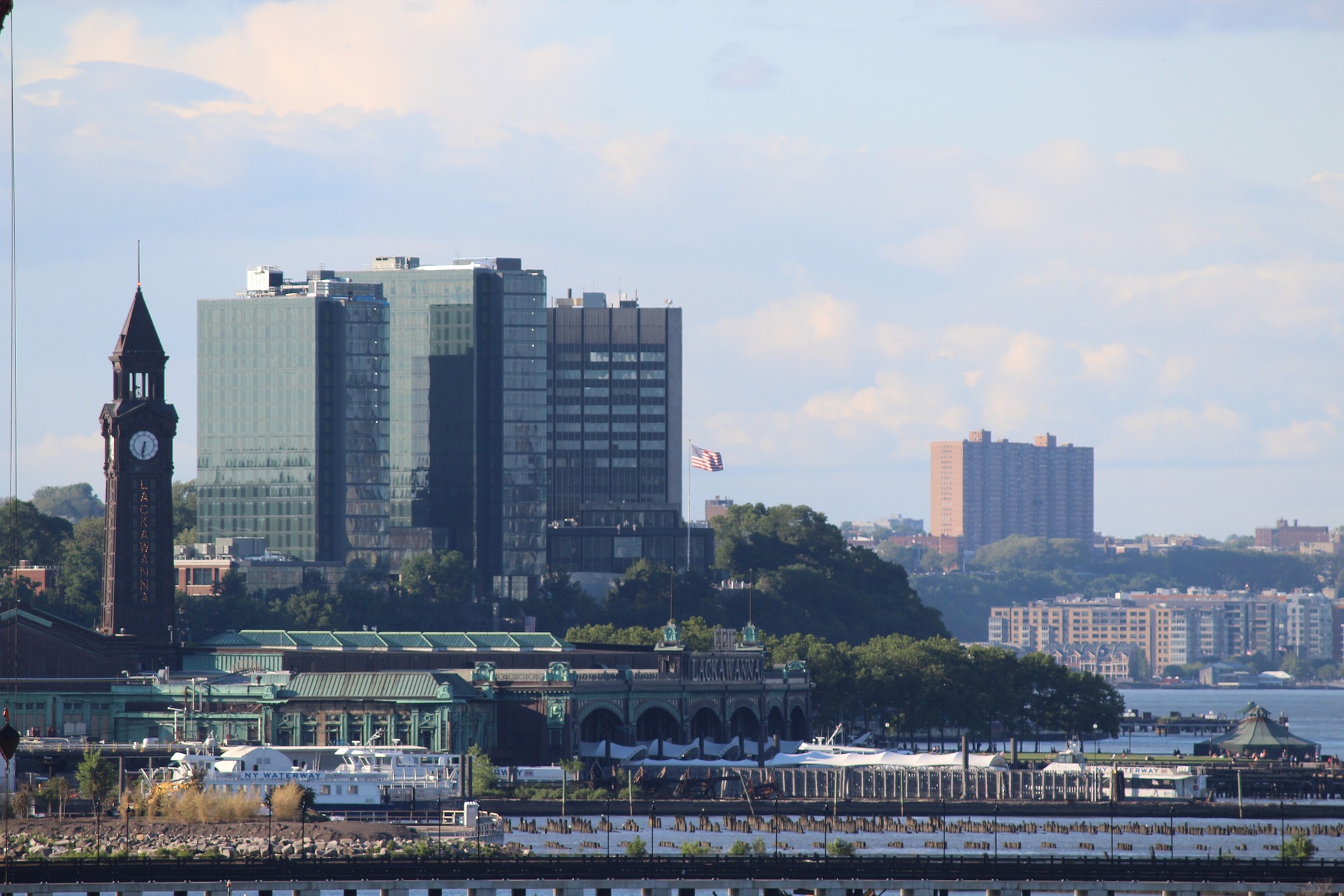Transportation policies enacted in Hoboken, N.J. over the past several years are paying off in the form of fewer pedestrian deaths and injuries.
The city has adopted daylighting, bike lanes, lower speed limits, and intersection redesigns to make its roads safer. The citywide speed limit was reduced to 20 miles per hour. Crosswalks have been painted and repaved to make it easier for drivers to see them. More than 40 curb extensions have been installed to direct cars farther from intersections. Bike lanes now grace about half of Hoboken’s roads.
The mayor says that a bucket of paint enables the city to create a curb extension and high visibility crosswalks to realize a much safer environment at a modest cost. The measures taken by Hoboken have resulted in no traffic death since January 2017, with injuries falling 41%. This safer environment occurred while pedestrian deaths in the U.S. reach 40-year highs.
Daylighting, implementing measures that prevent cars parking at the corner of an intersection, has been a key strategy. This initiative was realized with bump outs—extensions of sidewalks or the creation of small rain gardens in lieu of additional pavement, or the addition of bike racks or bollards.
Related Stories
Codes and Standards | Apr 28, 2021
Building-integrated solar power turns buildings into power plants
Multiple alternatives could replace or complement rack-mounted PV arrays.
Codes and Standards | Apr 27, 2021
Ten real estate groups sign on to New York State’s high-rise decarbonization challenge
Each signee commits to carbon neutrality in one or more high-rise buildings it owns.
Codes and Standards | Apr 26, 2021
Dozens of companies, organizations call for Congress to double Energy Star funding
Despite broad support, program’s budget has steadily declined in recent years.
Codes and Standards | Apr 22, 2021
Alabama fire chiefs oppose proposal to change school building code oversight
Bill would move code compliance control from state to local boards.
Codes and Standards | Apr 21, 2021
After dry winter, California ramps up wildfire prevention efforts
State to spend half a billion dollars on projects including making buildings more fire resistant.
Codes and Standards | Apr 20, 2021
U.S. electric grid is halfway to zero carbon
Other sectors including buildings lag power industry.
Codes and Standards | Apr 19, 2021
Failed landmark preservation effort in Chicago provides lessons for planners
Gentrification fears heightened among Pilsen neighborhood residents doomed ambitious preservation plan.
Codes and Standards | Apr 14, 2021
New Phase 1 Environmental Site Assessment standard debuts in 2021
Will affect 250,000 commercial real estate deals a year.
Codes and Standards | Apr 13, 2021
British Columbia moves to accelerate mass timber construction
Province funds demonstration projects as part of economic recovery.
Codes and Standards | Apr 12, 2021
WoodWorks and Think Wood release first Mass Timber Design Manual
Interactive collection of information on mass timber products, design best practices, taller wood construction and sustainability.

















